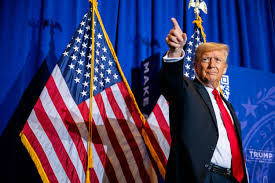You may feel the current imbroglio over discipline serves the ANC right. The party has only itself to blame for Julius Malema. He is the product of its heady promise of a ‘revolution', but is somewhat out of favour with the leadership at the moment because he is doing things that could actually bring revolution about.
After the alarming upheavals across Africa recently, Mr Malema cannot be indulged anymore. Socialism was ruled out as a system post apartheid, if indeed it was ever in the ANC's plan: different interests can read the Freedom Charter as for and against. What has counted since 1994 is that SA settles down to earn a living in a capitalist world and that ANC loyalists are well provided for in the mixed economy they preside over.
Mr Malema does not understand or care about such compromises. As a young man with nothing to lose and much to gain, he can easily rock the overloaded ANC boat - and in what is euphemistically called SA's ‘party-dominant democracy' that imperils the entire ship of state. If it's not socialist revolution, what other kind of revolution could Mr Malema intend - or, horror of horrors, unwittingly unleash? That is the question.
Many are suspicious he is the champion of people whose lives he visibly does not share. In everyday language, they cannot understand how he can be a ‘communist' and a commonplace capitalist at the same time. Not that people are lost for words. They can explain how he contrives to speak for the poorest of the poor when his personal preferences are clearly for the richest of the rich. They can interpret the expensive cars, watch and whisky, the veiled threats and menaces against ‘whites': Mr Malema is a hypocrite, a populist, a demagogue - are three of the more polite ways his opponents put it.
That still leaves a political explanation outstanding. Can Karl Marx in any way go hand in hand with what some openly call Mr Malema's fascism?
Before venturing a view on that very sensitive subject, let something be absolutely clear. Nothing is more mistaken than to lift experiences from other places and times and suggest they necessarily or even might follow here and now. History is not a set of laws or the moral tale it is often said to tell. It is a hugely complicated and constantly changing passage of interacting events that, with study, can leave you a tiny bit less than totally ignorant of the human predicament. That is all.
Before venturing a view on that very sensitive subject, let something be absolutely clear. Nothing is more mistaken than to lift experiences from other places and times and suggest they necessarily or even might follow here and now. History is not a set of laws or the moral tale it is often said to tell. It is a hugely complicated and constantly changing passage of interacting events that, with study, can leave you a tiny bit less than totally ignorant of the human predicament. That is all.
In that light, we can agree Marxism springs from the highest ideals of humanity - the community of all, internationalism and peace - and that fascism is not an ideology in any sense. Fascism is a politics of coercion which, if it entails anything besides verbal and physical violence, promotes extreme nationalism cultivated through a fervent nativism shading into racism, with all three being embodied in a messianic leader ready to be martyred for the sake of ‘the people'. Ein Volk, ein Reich, ein Fuhrer.
However, such theoretical differences have always had a way of vanishing in practice. Certainly in Europe communism and fascism were implacable enemies: their street brawls in Germany after World War I finally ended in the World War II fight to the death between Comrade Stalin's USSR
Outside Europe , communism readily teamed up with new and growing national feelings. In China in the early 1920s and in the long war against Japan Cuba; i
Julius Malema plays with a complex inheritance: African and European; white and black; cultural and universal. Imperialism, Marxism, democratic centralism, fascism, all driven by a crusading zeal to dominate, hold out deceptive ends. Whether the intrusive former youth leader means good or ill for SA, we must decide. He cannot tell us when he cannot tell the outcome himself.

